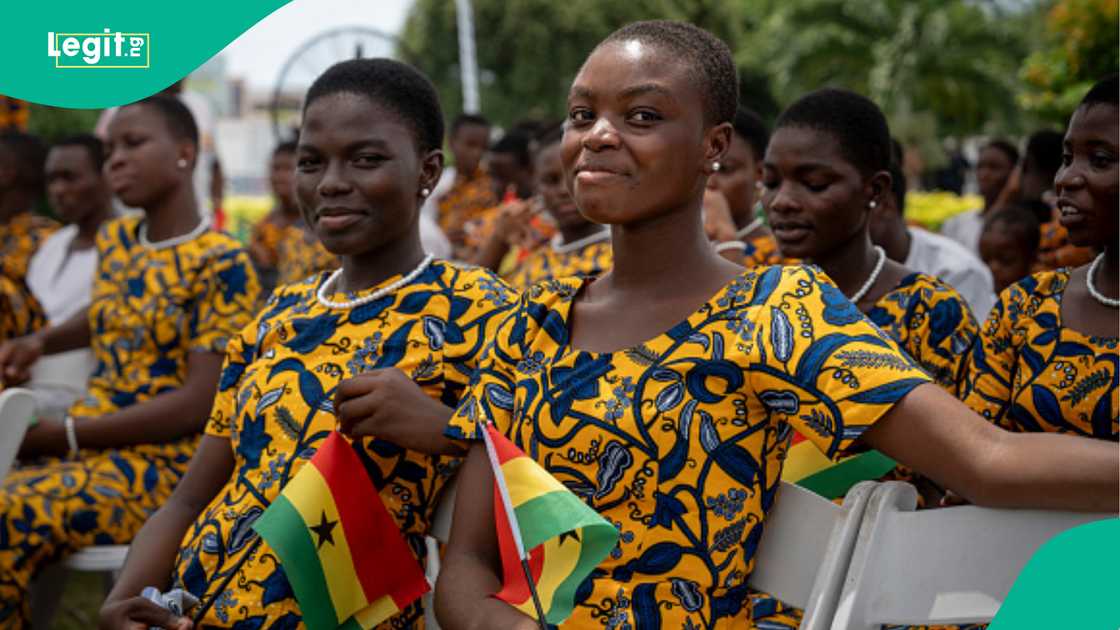Using Local Languages to Teach in Ghanaian Schools Now Compulsory, Government Declares
- Ghana has made the use of local languages compulsory in all schools, replacing English as the medium of instruction
- Education Minister Haruna Iddrisu says the policy will improve learning by allowing children to study in their mother tongue
- The Ghana Education Service has been directed to enforce the new language mandate nationwide
Ghana has officially mandated the use of local languages as the primary medium of instruction in all schools, replacing English, according to a report by DW.
The directive, announced by Education Minister Haruna Iddrisu, marks a significant shift in the country’s education policy and is part of a broader initiative to reset the national education system.

Source: Getty Images
Mr Iddrisu stated that the Ghana Education Service (GES) has been tasked with enforcing the new policy across the country.
He argued that children learn best in their mother tongue, which enhances comprehension and retention, particularly at the foundational level of education.
Ghanaian schools to prioritise mother tongue instruction
Speaking at the launch of the Free Tertiary Education Programme for Persons Living with Disabilities, the Minister underscored the importance of linguistic familiarity in early learning. He said that teaching in a language children already understand is a proven method for improving educational outcomes.
“l am directing the DG of the GES and the GES that from today that teacher use of mother tongue instruction is now compulsory in all Ghanaian schools. The GES is to ensure strict enforcement of this… This is part of President Mahama’s reset agenda,” Mr Iddrisu declared.
Policy aims to strengthen identity and learning outcomes
The Minister further emphasised that the policy aligns with the government’s broader vision of transforming Ghana’s education system into one that respects cultural identity while delivering quality learning.
He described the move as a strategic step towards building a more inclusive and effective educational framework.
The announcement has sparked national attention, with educators and policymakers expected to begin implementing the changes immediately. The GES is now under directive to ensure full compliance across all educational institutions.
Speaking with Legit.ng, Imaan Muhammad, an educationist based in Nigeria, spoke on Ghana’s new policy:
“Seriously, the move to make local languages the main medium in schools is very empowering. Learning in one’s mother tongue can boost understanding. But success will depend on teacher training, resources, and how well the policy is rolled out in the country.”
Policy likely to increase understanding
According to researchers, using local languages as the medium of instruction in schools plays a vital role in enhancing educational outcomes, particularly at the foundational level.
When children are taught in a language they already understand, it significantly improves their ability to grasp concepts, retain information, and participate actively in classroom discussions. This approach fosters cognitive development by reducing the linguistic barriers that often hinder comprehension when foreign languages are used.
It also strengthens cultural identity and pride, allowing learners to connect more deeply with their heritage and community values. Over time, this can lead to higher literacy rates, better academic performance, and a more equitable education system that reflects the linguistic diversity of the nation.

Read also
Ex-principals break silence after FG removed mathematics as compulsory subject for admission

Source: Getty Images
Mathematics no longer compulsory for Arts students seeking admission
Legit.ng earlier reported that the Federal Ministry of Education announced on Tuesday that senior secondary school students specialising in arts and humanities will no longer be required to present a credit pass in mathematics in their Senior School Certificate Examination (SSCE) as a condition for admission into universities and polytechnics.
The revised guidelines, which apply to examinations conducted by the West African Examination Council (WAEC) and the National Examination Council (NECO), mark a significant departure from the longstanding requirement that all admission seekers, regardless of discipline, must obtain five credit passes including mathematics and English language.
Source: Legit.ng



